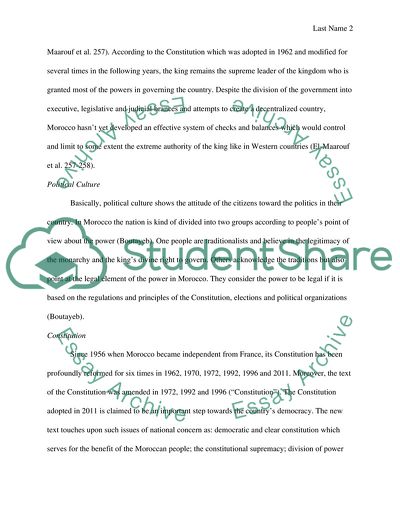Cite this document
(Political Culture and Institutions of Morocco Coursework Example | Topics and Well Written Essays - 2500 words, n.d.)
Political Culture and Institutions of Morocco Coursework Example | Topics and Well Written Essays - 2500 words. https://studentshare.org/politics/1847763-political-culture-and-institutions-of-morocco
Political Culture and Institutions of Morocco Coursework Example | Topics and Well Written Essays - 2500 words. https://studentshare.org/politics/1847763-political-culture-and-institutions-of-morocco
(Political Culture and Institutions of Morocco Coursework Example | Topics and Well Written Essays - 2500 Words)
Political Culture and Institutions of Morocco Coursework Example | Topics and Well Written Essays - 2500 Words. https://studentshare.org/politics/1847763-political-culture-and-institutions-of-morocco.
Political Culture and Institutions of Morocco Coursework Example | Topics and Well Written Essays - 2500 Words. https://studentshare.org/politics/1847763-political-culture-and-institutions-of-morocco.
“Political Culture and Institutions of Morocco Coursework Example | Topics and Well Written Essays - 2500 Words”. https://studentshare.org/politics/1847763-political-culture-and-institutions-of-morocco.


